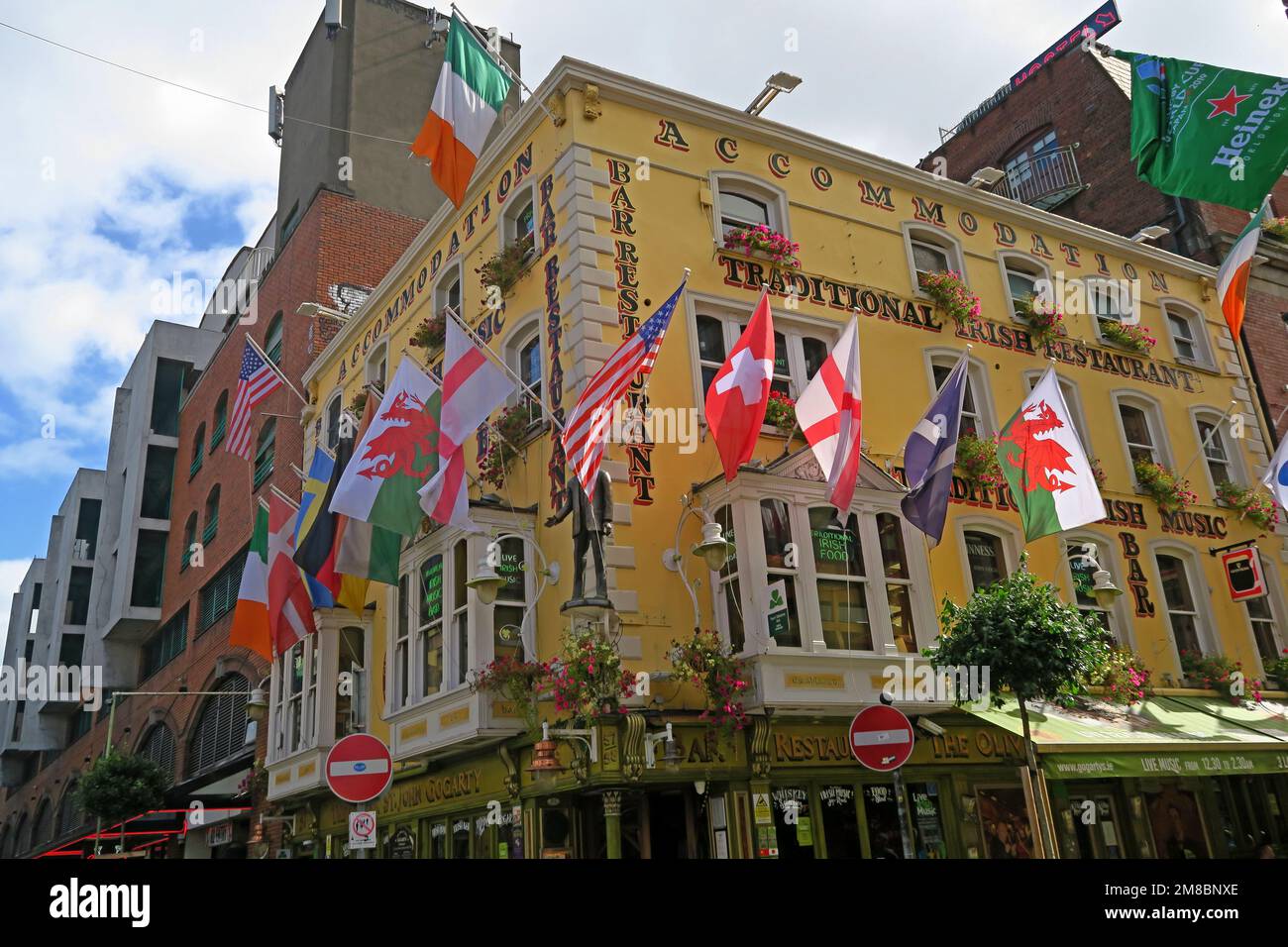Oliver St. John Gogartys bar, in the Heart of Temple Bar, Dublin, Eire, Ireland - 18-21 Anglesea St, Temple Bar, Dublin 2, D02 RX38

Image details
Contributor:
Tony Smith / Alamy Stock PhotoImage ID:
2M8BNXEFile size:
57.1 MB (2.4 MB Compressed download)Releases:
Model - no | Property - noDo I need a release?Dimensions:
5472 x 3648 px | 46.3 x 30.9 cm | 18.2 x 12.2 inches | 300dpiDate taken:
11 September 2019Location:
18-21 Anglesea St, Temple Bar, Dublin 2, D02 RX38More information:
Oliver Joseph St. John Gogarty (17 August 1878 – 22 September 1957) was an Irish poet, author, otolaryngologist, athlete, politician, and well-known conversationalist. He served as the inspiration for Buck Mulligan in James Joyce's novel Ulysses. Gogarty was born 17 August 1878 in Rutland Square, Dublin, the eldest child of Henry Gogarty, a well-to-do Dublin physician, and Margaret Gogarty (née Oliver), the daughter of a Galway mill owner. Three siblings (Henry, Mary, and Richard) were born later. Gogarty's father, himself the son of a medical doctor, had been educated at Trinity College and owned two fashionable homes in Dublin, which set the Gogartys apart from other Irish Catholic families at that time and allowed them access to the same social circles as the Protestant Ascendancy As one of Dublin's "medicos", Gogarty was known to be fond of public pranks and midnight carousing in "the Kips", Dublin's red-light district. He had a talent for humorous and bawdy verse, which quickly made the rounds through the city, and sometimes composed mnemonic lyrics to aid his medical studies. He also enjoyed a highly successful cycling career before being banned from the tracks in 1901 for bad language, and between 1898 and 1901 he rescued at least four people from drowning. He became interested in Irish nationalism after meeting Arthur Griffith in 1899, and contributed propaganda pieces to The United Irishman over subsequent years As a Sinn Féiner during the Irish War of Independence, Gogarty participated in a variety of anti-Black and Tan schemes, allowing his home to be used as a safe house and transporting disguised IRA volunteers in his car. Following the ratification of the Anglo-Irish Treaty, Gogarty sided with the pro-Treaty government (headed by his close friend Arthur Griffith) and was made a Free State Senator. When Griffith fell ill during the summer of 1922, Gogarty frequently attended his bedside. His death on 12 August 1922 had a profound effect on Gogarty